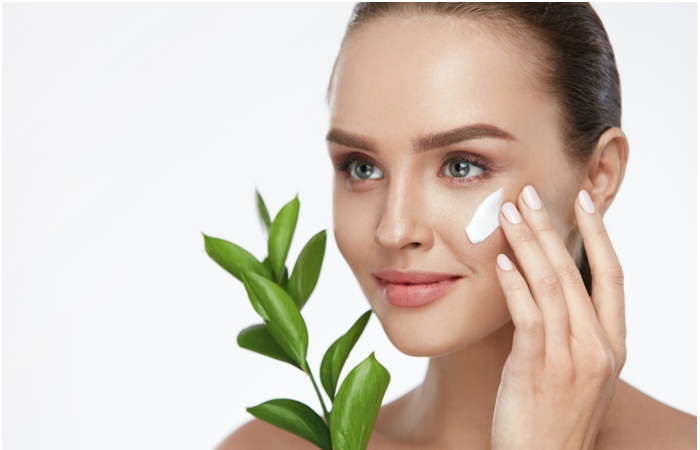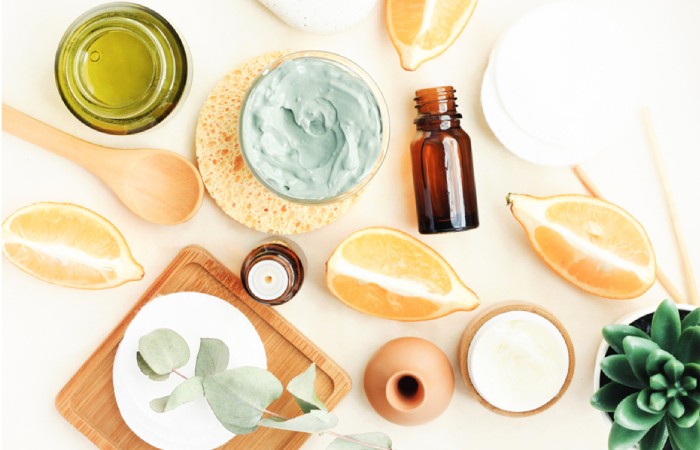From natural skincare to vegan skincare, there are many terms that you will find used on product labels and in marketing copy. But it’s not always evident what these terms mean, or what products you should select for your own personal skincare routine. Here’s what natural, clean, non-toxic, vegan, cruelty-free, and more skincare terms mean:
Table of Contents
Natural
“Natural” is typically used to refer to products that contain ingredients derived from natural sources, as opposed to chemically formulated in a lab. Note that these natural sources can sometimes include animals as well as plants, which means that products labeled “natural” are not automatically vegan or cruelty free skincare. Natural also doesn’t automatically mean safe either; there are plenty of naturally occurring substances that are actually very toxic to humans! Always read the label carefully so you can be sure of what ingredients the product contains.
Clean
“Clean” products are usually free from a list of ingredients that are thought to be potentially harmful to either people and/or the environment. This list of no-go ingredients varies from brand to brand, since “clean” is not a regulated term. Some common ingredients that clean products avoid include parabens, sulfates, phthalates. silicones, formaldehyde, and more. Certain clean products may also avoid artificial fragrances and colors or dye, while others may opt to include these ingredients to improve the overall cosmetic experience.
Non-Toxic or Toxin-Free
The terms “non-toxic” or “toxin-free” are typically used to refer to products that lack ingredients that have potentially been linked to hormone disruption, cancer, and other toxic responses in humans. Phthalates and formaldehyde are two common examples of ingredients that usually won’t be found in non-toxic products. However, there’s no regulation of this term, so always read the ingredient label of products that claim to be free of toxins.
Green
“Green” is another skincare marketing term that can mean a lot of diverse things depending on the brand. And Green beauty typically refers to sustainable or eco-friendly skincare, and it may also incorporate elements of natural or clean skincare as well (i.e. focusing on naturally derived ingredients while avoiding potentially harmful ones).
Organic
Organic is one of the few terms that is actually regulated (in this case, by the US Department of Agriculture, a.k.a. the USDA). In order to be labeled organic by the USDA, a product must contain 95% ingredients that were created without the use of pesticides, fertilizers, and other synthetic materials. The term “organic” should be accompanied by the USDA logo on the packaging; if not, then the brand might be using the organic certification illegally.
Sustainable
Unlike organic, “sustainable” is not an official designation or certification, so it’s always best to confirm what companies mean when they claim their skincare products are sustainable. “Sustainable” generally refers to skincare companies that prioritize recycling packaging, try to reduce single-use plastics, use non-toxic ingredients, and seek to decrease their carbon footprint.
Eco-Friendly
Similar to sustainable, “eco-friendly” is a term that isn’t an official designation, but is generally used to refer to products that use recyclable packaging and sustainably sourced ingredients. Again, there is nothing to stop companies from using “eco-friendly” as a marketing term, so it’s always best to do some due diligence if that is an important buying criteria for you when it comes to skincare products. Some companies may use the terms “green,” “sustainable,” and eco-friendly” interchangeably.
Vegan
Vegan skincare products do not contain any ingredients that are animal byproducts. Some common animal-derived ingredients used in cosmetic products include beeswax, honey, lanolin, squalene, carmine, and gelatin. Many vegan skincare products are also cruelty-free, but these are technically two separate designations, so it’s always best to read the label carefully if you are looking for skincare that is friendly to animals.
Cruelty-Free
This term typically means that the final product or formulation has not been tested on animals. However, this term is not regulated by the FDA or any other government body, and some cruelty-free products are still tested on animals at the ingredient level. It’s always best to double check with the company to see what they mean if they use the term “cruelty-free” and/or have a bunny logo on their products.
Fair-Trade
If an ingredient or product is fair trade certified, it means that the supplier or manufacturer has been vetted and approved by a fair trade certification body, typically Fair Trade USA. Fair trade certified organizations generally meet the following criteria: treating employees fairly and ethically; no child labor; providing safe working conditions; using sustainable production; and minimizing their impact on the earth.
Hypoallergenic
Hypoallergenic is a word that skincare companies use to refer to products that have caused less allergic reaction than other products. However, there is no federal standard that defines what hypoallergenic means, so companies can use the term however they want. If you have sensitive skin, be sure to double check the label before buying hypoallergenic products just to be safe.
Non-Comedogenic
Non-comedogenic is a word that refers to skincare products that lack ingredients that can clog pores, such as lanolin and shea butter. Similar to hypoallergenic, there is no federal standard that defines what non-comedogenic means, and products labeled as such don’t have to undergo testing. People with acne may benefit from using non-comedogenic products, but again they should check the label before making a purchase.
As you can see, in many cases the individual ingredients mean more that whatever marketing term is used on the label. Wondering which ingredients work best for your skin concerns? Try this personalized skincare quiz to find out.



